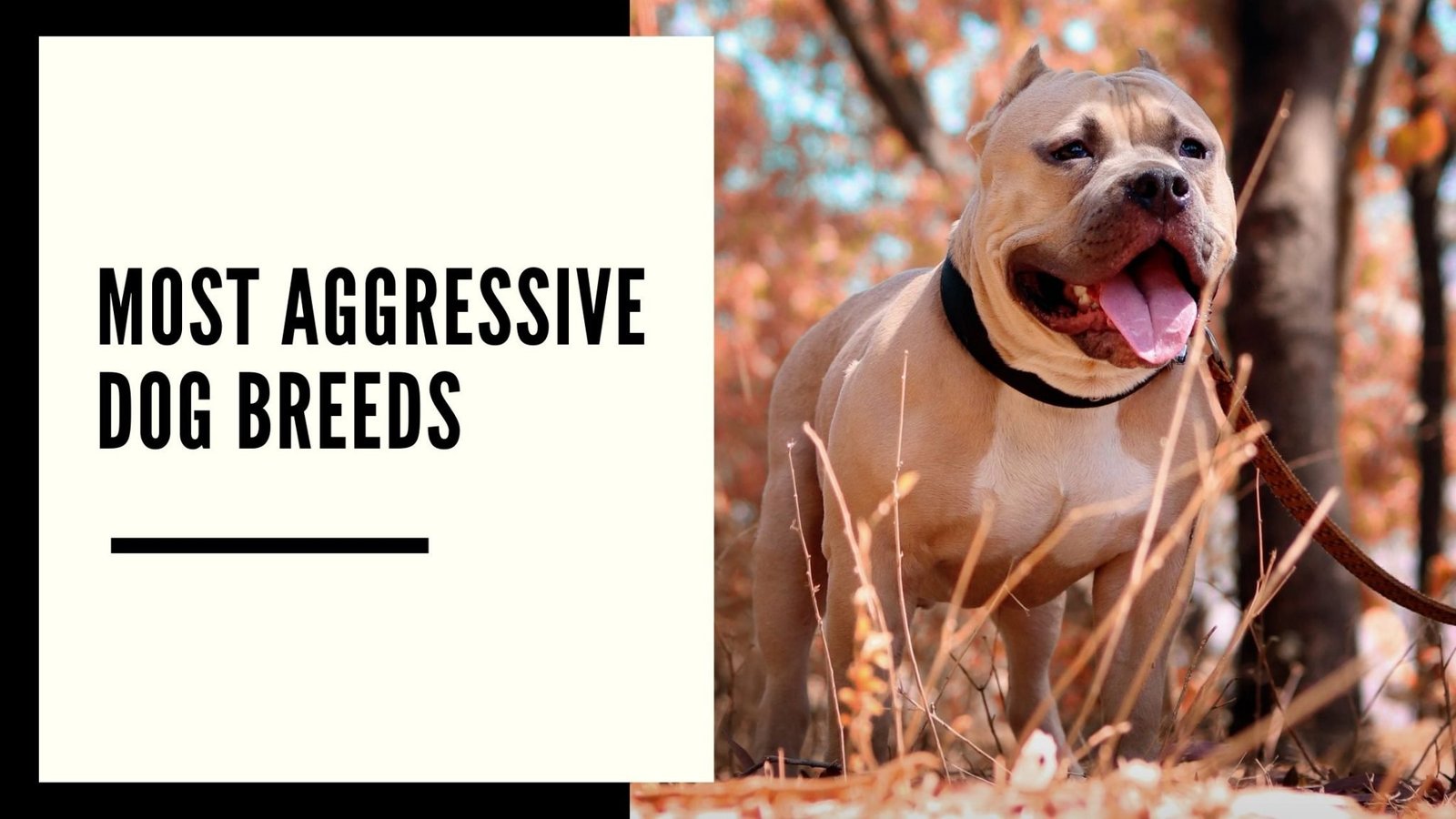When discussing aggressive dog breeds, it’s crucial to approach the topic with a balanced perspective. Aggression in dogs can stem from various factors, including genetics, upbringing, and individual circumstances. While certain breeds might be more prone to aggressive behaviors, it’s essential to remember that any dog, regardless of breed, can exhibit aggression under the right (or wrong) conditions.
American Pit Bull Terrier
Overview: The American Pit Bull Terrier often finds itself at the center of aggressive breed discussions. Historically bred for bull-baiting and later as a farm dog, pit bulls have a strong and muscular build.
Reality: Many pit bulls are friendly and well-adjusted pets. Aggression can arise from poor training, abuse, or lack of socialization. Responsible ownership and proper training can mitigate aggressive tendencies.
Rottweiler
Overview: Rottweilers are large, powerful dogs originally used for herding and guarding. Their strength and protective nature can sometimes be misunderstood as aggression.
Reality: Rottweilers are generally loyal and protective of their families. Aggression often results from inadequate socialization or improper handling. Consistent training and positive reinforcement are key.
Doberman Pinscher
Overview: Dobermans are known for their sleek appearance and high energy levels. They were originally bred for protection and have a reputation for being formidable guard dogs.
Reality: Dobermans are intelligent and can be aggressive if they feel threatened. They thrive with firm, consistent training and socialization, which helps them become well-rounded companions.
Bullmastiff
Overview: The Bullmastiff is a large, muscular breed initially bred for guarding estates. Their imposing size can be intimidating.
Reality: Bullmastiffs are generally gentle giants with a strong protective instinct. Aggression is more likely to occur if the dog is not socialized or is treated harshly. Proper training can ensure they are calm and confident.
German Shepherd
Overview: German Shepherds are highly versatile working dogs known for their intelligence and strength. They are often used in police and military roles due to their ability to perform demanding tasks.
Reality: German Shepherds are usually well-behaved and protective. Aggressive behavior can emerge if the dog is not given enough mental stimulation or is poorly trained. Proper socialization and training are essential.
Dogo Argentino
Overview: The Dogo Argentino is a strong and athletic breed originally bred for big-game hunting. They have a robust build and a confident demeanor.
Reality: While they can be protective and assertive, Dogo Argentinos are typically good-natured with the right training and socialization. Aggression is often a result of lack of proper care and handling.
Understanding Aggression
Factors Influencing Aggression:
- Genetics: Some breeds have traits that can lead to aggressive behaviors, but this is not a definitive predictor of a dog’s behavior.
- Environment: A dog’s upbringing, including early socialization and training, plays a significant role in its behavior.
- Health: Pain or illness can cause a normally gentle dog to act aggressively.
Mitigating Aggression:
- Early Socialization: Introducing dogs to various people, environments, and other animals from a young age can help them develop into well-adjusted adults.
- Training: Consistent, positive reinforcement training helps manage behaviors and encourages obedience.
- Professional Help: Consulting a professional dog trainer or behaviorist can address specific aggression issues and help tailor a training plan.
Conclusion
While some dog breeds may have a higher predisposition to aggressive behaviors, it’s essential to remember that aggression is not solely determined by breed. Responsible ownership, proper training, and early socialization are crucial in shaping a dog’s behavior. Each dog is an individual, and with the right approach, even breeds with a reputation for aggression can become loving and well-mannered pets.
